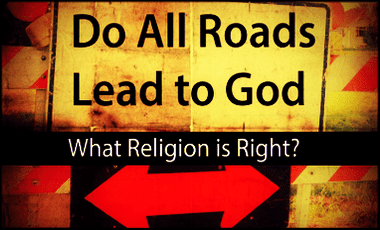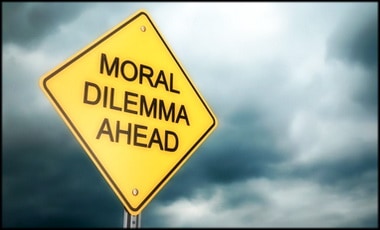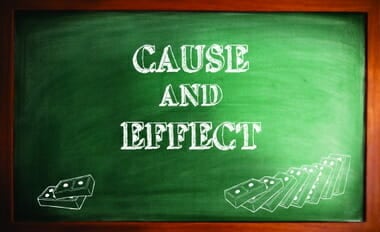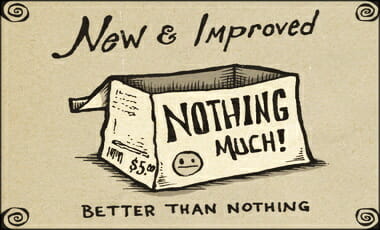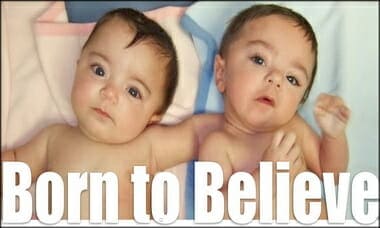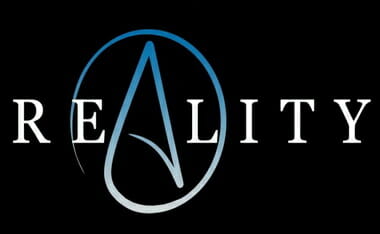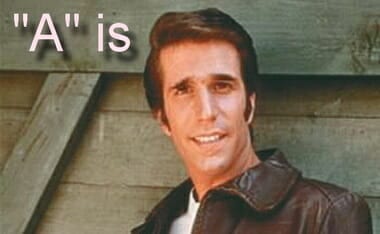(Jump to “Atheist Morals“)
Two Quotes I Love About Jesus:
Even if we did not have the New Testament or Christian writings, we would be able to conclude from such non-Christian writings as Josephus, the Talmud, Tacitus, and Pliny the Younger that: 1) Jesus was a Jewish teacher; 2) many people believed that he performed healings and exorcisms; 3) he was rejected by the Jewish leaders; 4) he was crucified under Pontius Pilot in the reign of Tiberius; 5) despite this shameful death, his followers, who believed that he was still alive, spread beyond Palestine so that there were multitudes of them in Rome by A.D. 64; 6) all kinds of people from the cities and countryside – men and women, slave and free – worshipped him as God by the beginning of the second century (100 A.D.)
Michael J. Wilkins, ed., Jesus Under Fire: Modern Scholarship Reinvents the Historical Jesus (Grand Rapids, MI: Zondervan, 1996), 221-222.
The nine founders among the eleven living religions in the world had characters which attracted many devoted followers during their own lifetime, and still larger numbers during the centuries of subsequent history. They were humble in certain respects, yet they were also confident of a great religious mission. Two of the nine, Mahavira and Buddha, were men so strong-minded and self-reliant that, according to the records, they displayed no need of any divine help, though they both taught the inexorable cosmic law of Karma. They are not reported as having possessed any consciousness of a supreme personal deity. Yet they have been strangely deified by their followers. Indeed, they themselves have been worshipped, even with multitudinous idols.
All of the nine founders of religion, with the exception of Jesus Christ, are reported in their respective sacred scriptures as having passed through a preliminary period of uncertainty, or of searching for religious light. Confucius, late in life, confessed his own sense of shortcomings and his desire for further improvement in knowledge and character. All the founders of the non-Christian religions evinced inconsistencies in their personal character; some of them altered their practical policies under change of circumstances.
Jesus Christ alone is reported as having had a consistent God consciousness, a consistent character himself, and a consistent program for his religion. The most remarkable and valuable aspect of the personality of Jesus Christ is the comprehensiveness and universal availability of his character, as well as its own loftiness, consistency, and sinlessness.
Robert Hume, The World’s Living Religions (New York, NY: Charles Scribner’s Sons, 1959), 285-286.
I want to first deal with the “authorship of Mark” challenge. I may deal with the video authors challenge about the Old Testament God — but really this is old news by the “new atheists.” This has been thoroughly dealt with by many, many fine apologists over the years. If I do it will be in a “PART 2” But for now, this will suffice:
Missing The Moral Mark
“If the solar system was brought about by an accidental collision, then the appearance of organic life on this planet was also an accident, and the whole evolution of Man was an accident too. If so, then all our thought processes are mere accidents – the accidental by-product of the movement of atoms. And this holds for the materialists and astronomers as well as for anyone else’s. But if their thoughts — i.e. of Materialism and — are merely accidental by-products, why should we believe them to be true? I see no reason for believing that one accident should be able to give a correct account of all the other accidents. It’s like expecting that the accidental shape taken by the splash when you upset a milk-jug should give you a correct account of how the jug was made and why it was upset.”
C.S. Lewis, God In the Dock (Grand Rapids: Eerdmans Publishing Co., 1970), pp. 52–53.
If a good God made the world why has it gone wrong? And for many years I simply refused to listen to the Christian answers to this question, because I kept on feeling “whatever you say and however clever your arguments are, isn’t it much simpler and easier to say that the world was not made by any intelligent power? Aren’t all your arguments simply a complicated attempt to avoid the obvious?” But then that threw me back into another difficulty.
My argument against God was that the universe seemed so cruel and unjust. But how had I gotten this idea of just and unjust? A man does not call a line crooked unless he has some idea of a straight line. What was I comparing this universe with when I called it unjust? If the whole show was bad and senseless from A to Z, so to speak, why did I, who was supposed to be part of the show, find myself in such violent reaction against it? A man feels wet when he falls into water, because man is not a water animal: a fish would not feel wet. Of course I could have given up my idea of justice by saying it was nothing but a private idea of my own. But if I did that, then my argument against God collapsed too — for the argument depended on saying that the world was really unjust, not simply that it did not happen to please my private fancies. Thus in the very act of trying to prove that God did not exist — in other words, that the whole of reality was senseless — I found I was forced to assume that one part of reality — namely my idea of justice — was full of sense. Consequently, atheism turns out to be too simple. If the whole universe has no meaning, we should never have found out that it has no meaning: just as, if there were no light in the universe and therefore no creatures with eyes, we should never know it was dark. Dark would be without meaning.
C.S. Lewis, Mere Christianity (San Francisco, CA: Harper San Francisco, 1952), 38-39.
- Is The God Of The Old Testament A Merciless Monster? | CARM)
- Genocide And The God Of The Old Testament | CROSS EXAMINED
- Hyperbole In the Old Testament (War Texts As A Genre) | RELIGIO-POLITICAL TALK
- Interview with Peter Kreeft on Moral Evil in the Old Testament | YouTube
— Atheist Morals Noted Below —
Calling All Martyrs
In the VIDEO, the author tries to make a connection between the zealots who died following Jim Jones, and what Jesus has called people to in Mark 8:34-35:
34 Calling the crowd along with his disciples, he said to them, “If anyone wants to follow after me, let him deny himself, take up his cross, and follow me. 35 For whoever wants to save his life will lose it, but whoever loses his life because of me and the gospel will save it. 36 For what does it benefit someone to gain the whole world and yet lose his life? 37 What can anyone give in exchange for his life? 38 For whoever is ashamed of me and my words in this adulterous and sinful generation, the Son of Man will also be ashamed of him when he comes in the glory of his Father with the holy angels.”
— Christian Standard Bible (Nashville, TN: Holman Bible Publishers, 2020), Mk 8:34–38.
What are the KEY THEMES via the ESV Study Bible?
But to sum up the people willing to die after Jesus’ ascension, you have a myriad of martyrs being burned alive, fed to lions, and the like. They did not poison themselves or die fighting to convert others. For instance, in 2016 about 90,000 Christians were killed for their faith worldwide. Christians are the most martyred group in the world. Maybe Jesus was foreshadowing this reality’s in His omniscience? (I will post a commentary at the end to show the slightly more complex idea than the simpleton one in the video.)
AUTHORSHIP!
This first – short – video is by J. Warner Wallace, followed by a quick blurb I assume many do not know well… followed still by some more of the same. I wanted to post on this topic because of a video by , the part that got me thinking was the section from the 10:32 mark to the 12:05 time stamps.
LEARN RELIGIONS has this interesting blurb for the uninitiated:
John Mark in the Bible
John Mark was not one of the 12 apostles of Jesus. He is first mentioned by name in the book of Acts in connection with his mother. Peter had been thrown in prison by Herod Antipas, who was persecuting the early church. In answer to the church’s prayers, an angel came to Peter and helped him escape. Peter hurried to the house of Mary, the mother of John Mark, where she was holding a prayer gathering of many of the church members (Acts 12:12).
Both the home and household of John Mark’s mother Mary were important in the early Christian community of Jerusalem. Peter seemed to know that fellow believers would be gathered there for prayer. The family was presumably wealthy enough to have a maidservant (Rhoda) and host large worship meetings.
The earliest manuscripts tell us Mark wrote the Gospel: “according to Mark.” But who was Mark?
Mark, or John Mark, as he was known, lived in Jerusalem, and his mother owned a home where the earliest followers of Jesus gathered. He worked with Paul and Barnabas on their first missionary journey. Later, he joined Peter in Rome. It was in Rome, according to church tradition, where Mark wrote Peter’s version of the Gospel.
ZONDERVAN has an excellent article titled, “Who Wrote the Gospel of Mark?“. Here is part of that article:
The earliest tradition on Mark’s authorship
Despite this anonymity, there is strong and early tradition identifying the author of the Third Gospel as John Mark, part-time associate of both Paul and Peter. The earliest tradition is reported by the church historian Eusebius (c. AD 263 – 339), who quotes Papias, bishop of Hierapolis, in the latter’s five-volume work known as Interpretation of the Sayings of the Lord (Λογίων κυριακῶν ἑξήγησις). Papias, likely writing around AD 95 – 110,37 quotes John “the Elder” concerning the authorship of the Second Gospel:
The Presbyter used to say this also: “Mark became Peter’s interpreter and wrote down accurately, but not in order, all that he remembered of the things said and done by the Lord. For he had not heard the Lord or been one of his followers, but later, as I said, a follower of Peter. Peter used to teach as the occasion demanded, without giving systematic arrangement to the Lord’s sayings, so that Mark did not err in writing down some things just as he recalled them. For he had one overriding purpose: to omit nothing that he had heard and to make no false statements in his account.”2
Eusebius points out that though Papias did not himself know the apostles, he was in direct contact with those who had heard them, including John the Elder, Aristion, Polycarp, and the daughters of Philip the Evangelist (Eusebius, Hist. eccl. 3.39.1 – 9; cf. Acts 21:8 – 9).3 We thus have a first-century tradition claiming that Mark accurately interpreted (or translated) Peter’s eyewitness accounts, turning Peter’s anecdotal stories into a connected narrative, though not necessarily in chronological order.4
Mark’s authorship in the second century
Second-century sources make similar claims. The Anti-Marcionite Prologue to Mark (c. 160 – 180) identifies Mark as the author and links him to Peter: “Mark . . . who was called ‘stump-fingered’ because for the size of the rest of his body he had fingers that were too short. He was Peter’s interpreter. After the departure [or ‘death’] of Peter himself, the same man wrote his Gospel in the regions of Italy.”5 The odd statement about Mark’s disfigured fingers may point to a reliable tradition, since the church is unlikely to have invented such a disparaging remark.6 We find here two additional pieces of information: that Mark wrote after Peter’s death and that he wrote in Italy.
Irenaeus (c. 180), referring to Peter and Paul, similarly asserts, “Now Matthew published a written Gospel among the Hebrews in their own tongue, while Peter and Paul were evangelizing and founding the church in Rome. But after their departure [ἔξοδος; death?], Mark, the disciple and interpreter of Peter, himself also handed over to us, in writing, the things preached by Peter.”7 The implication is that Mark is writing from Rome after the deaths of Peter and Paul.
Clement of Alexandria (c. 180) specifically refers to Rome: “When, by the Spirit, Peter had publicly proclaimed the Gospel in Rome, his many hearers urged Mark, as one who had followed him for years and remembered what was said, to put it all in writing. This he did and gave copies to all who asked. When Peter learned of it, he neither objected nor promoted it.”8 Peter’s apparent indifference to Mark’s work suggests that this statement was not created as an apologetic defense of the Petrine tradition, since, if that were the case, one would expect a much more positive affirmation by Peter. Other early church writers, including Tertullian (Marc. 4.5), Origen (Eusebius, Hist. eccl. 6.25.5), and Jerome (Comm. Matt., prologue 6), affirm Mark’s role as author and that he was dependent on the eyewitness accounts of Peter.
How many of these early witnesses are dependent on one another is not known. Yet their unanimity is impressive. No competing claims to authorship are found in the early church. Since John Mark was a relatively obscure figure, it seems unlikely that a gospel would have been attributed to him if he had not in fact written it. We could add to this the evidence of the titles to the Gospels, which, as noted above, appear in nearly all of our extant manuscripts.
Internal evidence for Markan authorship
Although internal evidence does not provide direct evidence for authorship, it can be used to help corroborate the external claims. (1) The author’s many Aramaisms (Mark 3:17; 5:41; 7:11, 34; 10:45; 14:36) are compatible with a Palestinian Jew like John Mark (cf. Acts 12:12). (2) The large number of Latinisms would also fit a Roman provenance (place of origin). (3) The identification of Rufus and Alexander as sons of Simon of Cyrene (15:21) is also significant, since it confirms that the author was known to his readers. It seems unlikely that the title “according to Mark” (κατὰ Μάρκον) could have been attached to the gospel so early if the original readers knew it came from someone else. Furthermore, if this Rufus is the same one mentioned in Rom 16:13, we have incidental confirmation of a Roman provenance.
(More at ZONDERVAN)
FOOTNOTES
2) Eusebius, Hist. eccl. 3.39.15 (translation from P. Maier, Eusebius: The Church History (Grand Rapids: Kregel, 1999), 129 – 30.
3) “Papias thus admits that he learned the words of the apostles from their followers but says that he personally heard Aristion and John the presbyter. He often quotes them by name and includes their traditions in his writings” (Eusebius, Hist. eccl. 3.39.7; trans. Maier, Eusebius, 127).
4) The connection to Peter is also indirectly made by Justin Martyr (c. AD 150), who refers to Mark 3:16 – 17 ( Jesus’ naming of Simon as “Peter,” and James and John as “Sons of Thunder”) as coming from the memoirs of Peter (Dial. 106). For strong defenses of the authenticity of the Papias tradition, see Hengel, Studies, 47 – 53; Robert H. Gundry, Mark: A Commentary on His Apology for the Cross (Grand Rapids: Eerdmans, 1993), 1026 – 45.
5) Cited by C. Black, Mark: Images of an Apostolic Interpreter (Columbia, SC: University of South Carolina Press, 1994), 119. The date of the Anti-Marcionite prologues is disputed, with some scholars placing them in the third century.
6) The same description is found in Hippolytus, Haer. 7.30.1 (see Black, Mark, 115 – 18).
7) Ireneaus, Haer. 3.1.1; translation from Black, Mark, 99 – 100.
8) Cited by Eusebius, Hist. eccl. 6.14.6 – 7 (trans. Maier, Eusebius, 218).
GOT QUESTIONS also notes much of the same:
Author: Although the Gospel of Mark does not name its author, it is the unanimous testimony of early church fathers that Mark was the author. He was an associate of the Apostle Peter, and evidently his spiritual son (1 Peter 5:13). From Peter he received first-hand information of the events and teachings of the Lord, and preserved the information in written form.
It is generally agreed that Mark is the John Mark of the New Testament (Acts 12:12). His mother was a wealthy and prominent Christian in the Jerusalem church, and probably the church met in her home. Mark joined Paul and Barnabas on their first missionary journey, but not on the second because of a strong disagreement between the two men (Acts 15:37-38). However, near the end of Paul’s life he called for Mark to be with him (2 Timothy 4:11).
Date of Writing: The Gospel of Mark was likely one of the first books written in the New Testament, probably in A.D. 55-59.
Commentary 1
- T. France, The Gospel of Mark: A Commentary on the Greek Text, New International Greek Testament Commentary (Grand Rapids, MI; Carlisle: W.B. Eerdmans; Paternoster Press, 2002), 339–341.
34 Mark uses προσκαλέομαι to alert the reader to expect something new or emphatic to be revealed, or some new instruction to be delivered to the disciples (cf. 3:13, 23; 6:7; 7:14; 10:42; 12:43). What is surprising here is that the object of the verb is not just the disciples, whom one would expect, but τὸν ὄχλον σὺν τοῖς μαθηταῖς αὐτοῦ. We have gained from vv. 27–33 the impression that the setting is a private retreat in the countryside in the far north of Palestine, where Jesus was presumably little known and the population probably largely non-Jewish. A crowd of people in this area who were at least potentially followers of Jesus seems incongruous, and they will play no further part in the narrative. From the narrator’s point of view, however, the introduction of the ὄχλος serves here, rather like οἱ περὶ αὐτὸν σὺν τοῖς δώδεκα in 4:10, to widen the audience for a key pronouncement; their inclusion in the audience asserts that the harsh demands of the following verses apply not only to the Twelve but to anyone else who may wish to join the movement. The introductory phrases εἴ τις θέλει and ὃς γὰρ ἐάν (vv. 35, 38) further generalise the scope of the paragraph; this is not a special formula for the elite, but an essential element in discipleship.
ὀπίσω μου is used here not as in v. 33 but in its more normal NT sense (see 1:17, 20 etc.), and the double use alongside it of ἀκολουθέω (cf. 1:18; 2:14) confirms that we have here a basic condition of discipleship. It is to join Jesus on the way to execution. This is the first use of σταυρός by Mark, and neither noun nor verb will occur again before chapter 15. Jesus’ predictions of his death in 8:31; 9:31; 10:33–34 do not spell out the means of death, and this specifically Roman form of execution would not be the first to come to a Jewish mind when hearing of death at the behest of the Jewish authorities. By the time Mark wrote his gospel, of course, Jesus’ crucifixion was well known, and his readers would need no explanation for the σταυρός here. But at the beginning of the journey to Jerusalem such language is calculated to shock, and evokes a vivid and horrifying image of the death march with all its shameful publicity. The preservation of so specific an image at more than one point in the gospel tradition (see also the Q saying Mt. 10:38; Lk. 14:27) may suggest that it originates from Jesus’ own awareness of how he would die rather than from Mark’s reading back the later event.
The metaphor of taking up one’s own cross is not to be domesticated into an exhortation merely to endure hardship patiently. In this context, following 8:31, it is an extension of Jesus’ readiness for death to those who follow him, and the following verses will fill it out still in terms of the loss of life, not merely the acceptance of discomfort. While it may no doubt be legitimately applied to other and lesser aspects of the suffering involved in following Jesus, the primary reference in context must be to the possibility of literal death.
The call to take up the cross is preceded by ἀπαρνησάσθω ἑαυτόν, a phrase not paralleled in the gospel tradition. The verb ἀπαρνέομαι is particularly associated with Peter’s eventual denial not of himself but of his master; in that context it means to dissociate oneself completely from someone, to sever the relationship. So the reflexive use implies perhaps to refuse to be guided by one’s own interests, to surrender control of one’s own destiny. In 2 Tim. 2:13 ἀρνήσασθαι ἑαυτόν (of God as subject) means to act contrary to his own nature, to cease to be God. What Jesus calls for here is thus a radical abandonment of one’s own identity and self-determination, and a call to join the march to the place of execution follows appropriately from this. Such ‘self-denial’ is on a different level altogether from giving up chocolates for Lent. ‘It is not the denial of something to the self, but the denial of the self itself.’
35–37 The talk of losing and gaining the ψυχή in these verses depends on the range of meaning of ψυχή, and poses problems for the translator. The same noun denotes both the ‘being alive’ (as opposed to dead; cf. 3:4; 10:45) which one might seek to preserve by escaping persecution and martyrdom, and the ‘real life’ which may be the outcome of such martyrdom, and therefore is to be found beyond earthly life. It is in this latter sense that the English word ‘soul’ is traditionally used here, but the wordplay is better preserved by retaining ‘life’ but where necessary qualifying it with ‘true/eternal’ or ‘earthly’.
The immediate subject of these verses, following as they do the imagery of taking up one’s cross in v. 34, is surely the literal loss of (earthly) life which the disciple is called to accept as a potential result of following Jesus. Only that sense fully does justice to the wordplay. To extend this sense to the loss of privilege, advantage, reputation, comfort, and the like may be legitimate in principle, but only so long as this primary and more radical sense is not set aside. To cling to the things of this life, the things which humanity naturally values most, is the way to forfeit true life; clinging to life itself is the ultimate example of this concern, and is set in contrast with the acceptance of death (for the right reason) as the way to real life. Jesus himself, in his death and resurrection, will be the supreme example of this new perspective.
The promise of true life is not attached to death in itself, but to the loss of life ἕνεκεν [ἐμοῦ καὶ] τοῦ εὐαγγελίου (see Textual Note). The possibility of literal martyrdom as the outcome of Christian discipleship is clearly envisaged here; cf. 13:9 (ἕνεκεν ἐμοῦ). Jesus’ expectation of his own death must have raised this possibility, and the experiences of the early church from Acts 7 onwards would add weight to it. The specific mention of the εὐαγγέλιον as the cause of loss of life indicates that the disciples are to play an active role in mission rather than merely privately following the teaching of Jesus, and that it is in this missionary work that they are likely to meet with persecution and death. Best rightly emphasises that the addition of this phrase indicates the inadequacy of a view of discipleship as merely the imitation of Jesus.
In the Synoptic Gospels κόσμος does not carry the negative connotation it has elsewhere in the NT, and especially in John; it denotes the created world in a neutral sense. κερδῆσαι τὸν κόσμον ὅλον therefore simply expresses the height of human ambition and achievement, measured in terms of earthly life. While ζημιόω sometimes carries a juridical sense of penalty or punishment, the context here does not require that nuance. Its more normal sense is simply loss or disadvantage. ζημιωθῆναι in v. 36 therefore denotes the opposite of κερδῆσαι; this is a profit and loss account, and it is clearly understood that the loss of the ψυχή (here ‘true life’) far outweighs any gain in terms of earthly advantage.
The same idea is differently expressed in the rhetorical question of v. 37, where again the assumption is made that the ψυχή is all that ultimately matters, and that nothing else can compensate for its loss. The ἀντάλλαγμα (cf. LXX Job 28:15) is the ‘exchange rate’ at which the ψυχή is valued; it is beyond price. The language of exchange echoes Ps. 49:7–9 (though LXX there uses λυτρόω/λύτρωσις, not ἀνταλλάσσομαι/ἀντάλλαγμα), but whereas the psalm speaks of a payment to avoid physical death, here the focus has moved to ‘true life’, which is even more beyond the reach of human valuation. There is no reason in this context to read into the question any developed theology of redemption; it is simply a statement of comparative value.
Commentary 2
- David Smith, Mark: A Commentary for Bible Students (Indianapolis, IN: Wesleyan Publishing House, 2007), 157–169
Insight into the Messiah’s Task
Mark 8:[31]–33
…….3. Jesus’ First Passion Prediction 8:31–33
Coupled with the immediately preceding command to silence, the core of Jesus’ self-revelation began with a redirection of the disciples’ choice of titles. They chose Messiah; Jesus offered another, more enigmatic title: the Son of Man (8:31). What Jesus was about to say regarding suffering and death might have been incomprehensible if He had retained the disciples’ more victorious-sounding title: “Christ.” Jesus would not allow himself to be categorized. For Jesus, the title “Christ” carried too much militaristic and nationalistic baggage; it had to be tempered with the less familiar “Son of Man” designation. He went on to teach His disciples the essential issues with reference to His identity.
The “Son of Man must suffer many things” (8:31). The disciples had seen nothing but power and victory in the acts of Jesus thus far. So these words had no place to take root. Moreover, the suffering and death of the Messiah raised huge theological problems. If Jesus was indeed the Messiah, why would God allow Him to be rejected and be killed (8:31)? Though the answer is not fully elucidated in the gospel of Mark, it is part of a plan found in the Old Testament. Mark reported that the Son of Man must suffer many things. The word must is often used of divine necessity as spelled out later in 9:12 and 14:21, 49. Thus, Jesus’ rejection and death are to find their source in Scripture and the heart of the Father’s will and not in the violence of Palestinian politics. Mark would not allow Jesus’ death to be read as a sociological mistake but rather as an act of divine redemption.
The wording of each of the three passion predictions is just a bit different. It is only in this passage that the reader of Mark sees the word suffer. But with rejected, Mark draws attention to Psalm 118:22, where Christians identify in Jesus’ fate that the “stone the builders rejected has become the capstone” and His following vindication. Each of the three passion predictions ends with the same climax: the resurrection of Jesus from the dead. The disciples were no more attentive to this aspect of Jesus’ teaching than any other.
No matter how much explanation He provided, the disciples never achieved complete clarity. This unveiling of the messianic mission demanded a response from the disciples. And it came from Peter as he took [Jesus] aside and began to rebuke him (8:32). Peter displayed that he was at cross-purposes with Jesus’ agenda. The word “rebuke” connotes a command by one taking authority over another. Jesus, without hesitation, turned and looked at his disciples (8:33), implicating them as coconspirators, as he rebuked Peter. The repetition of the same verb (8:31, command of Jesus to disciples; 8:32, Peter’s rebuke of Jesus; 8:33, Jesus’ rebuke to Peter) demonstrates irreconcilable perspectives. Jesus settled the issue when He ordered Peter to get behind Him. Note how this short statement is spatially as well as relationally oriented. First, Jesus said, “Get behind me.” This is the same language used by Jesus in His initial call of His disciples in 1:17 and could be translated, “Come, behind Me.” This might be understood as Jesus calling Peter to get back in step with Him. Further, there is another occurrence of the word in the next verse, where the phrase is translated, “If anyone would come after me” (8:34), cementing Peter’s call to follower-ship based not on his notion of power or might, but on Jesus’ revelation of rejection, shame, and death.
Relationally, Jesus called Peter “Satan.” In short order, Jesus completed His own counter-rebuke of Peter. Peter’s plan, which avoided the cross, placed him in league with Jesus’ archenemy. This is partially why Jesus commanded (rebukes) the disciples to silence, for the proclamation of a Messiah without the cross is satanic in its message. This exchange was brought to a culmination with Jesus’ closing reproof: “You do not have in mind the things of God, but the things of men” (8:33). The NIV makes this a separate sentence, while in actuality it is a dependent clause, specifically a result clause: “for you do not have in mind the things of God but the things of people.” The plain teaching of Jesus (8:31) cannot be grasped on a merely human level.
The vision for ministry that Jesus is teaching is irreconcilable with the vision Peter and the other disciples have for Him as the Messiah. The misguided vision of the disciples and their determined refusal to adopt Jesus’ revelation precludes them from full comprehension. Teaching, even from such a skilled educator as Jesus, would not adequately overcome humanity’s blindness. Thus, Mark conveys a truth that became Christian doctrine: Men and women must not merely become educated (or catechized) in the Church; they must initially be transformed.
The Demands of Discipleship
Mark 8:34–9:1
- The Cost of Following Jesus 8:34–35
The call to discipleship is comprehensive in its reach (disciples and crowds), but it immediately takes on a conditional nature: “If anyone would come after me” (8:34). The phrase literally translated reads, “If someone wishes/wants after me to follow.…” Jesus demands a heartfelt choice, which eliminates other, possibly more appealing, choices.
Jesus set the agenda according to His spiritual compass; a follower must “deny himself.” Powerfully, the insertion of the reflexive pronoun himself implies the first aspect of discipleship is to refuse to be guided by one’s own interests. Moreover, self-denial is not to be confused with asceticism (the denial of things one desires) or even with self-discipline. Self-denial is the denial of the self itself (see Phil. 2:3–4). The second requirement of a follower is to “take up his cross.” This is the first use of the word in the Gospel, certainly creating a link back to Jesus’ earlier prediction of His own death. In the first century, a cross indicated punishment of a shamed criminal at the hands of the Romans. Moreover, this Roman form of execution might be heard by the listeners as a call to rebel against Rome and to risk their lives. Yet, the word will not reoccur until chapter 15. This provided Jesus with ample time to define the impact and meaning of His own death and the cross-bearing imagery associated with His followers. For in summary, the self-denial to which Jesus calls one is abandonment of one’s autonomy and adoption of Jesus’ leadership and lordship.
Finally, Jesus beckoned His disciples to “follow me” (8:34). Jesus’ initial thrust into discipleship-making seems more directional than doctrinal. His call is bracketed with terms of motion. “Mark is rich in verbs of motion. Jesus is on the move; he summons disciples to come after him” Each time Jesus called His disciples, He was in motion (1:16, 19; 2:14; 10:17). Further, His call was to get in step directly behind Him. Thus, for one to be a disciple, one must follow. The mark of a faithful disciple is to be seen not in fully comprehending all the theological nuances of the person of Jesus, but in setting one’s sight unwaveringly on the path laid out by Jesus. The path to the cross is costly and counterintuitive, yet Jesus clearly laid out the directional markers for all who are willing to follow.
The demands of discipleship are further refined. “For whoever wants to save his life will lose it, but whoever loses his life for me and for the gospel will save it” (8:35). Jesus offered this paradoxical principle for savings one’s life, using two meanings of “life.” The word implies physical life in its first use (as opposed to death; see 3:4; 10:45). In this sense, people might think they can preserve their lives by avoiding conflict and persecution. However, Jesus’ other meaning was that by losing one’s physical life, one receives (saves) eternal life. More precisely, this call to a loss of life is not a morbid acceptance of death. Rather, it is an adoption of Jesus (for me) and His mission agenda (for the gospel) around which one reorients one’s focus and through which one discovers true life. A disciple is to follow Jesus by publicly adhering to the gospel, proclaiming it to the world, and dying if necessary.
- Keeping an Eternal Perspective 8:36–9:1
“What good is it for a man to gain the whole world, yet forfeit his soul?” (8:36). Here the contrast between this world and the next (soul) is made more explicit. In this Gospel, “world” represents the created order in a neutral sense. Gain implies human ambition and drive for worldly success. Thus, one should not connote an evil intent on the part of the pursuer, but the explicit contrast as the loss of one’s life or soul far exceeds any profit in terms of earthly gain. This contrast is continued in the rhetorical question “Or what can a man give in exchange for his soul?” (8:37). This passage continues with the theme that we cannot grasp the priceless value of one life or soul, and that there is another way to categorize value apart from what we can see, hear, smell, touch, and taste.
Verse 38 repeats the conditional emphasis begun in 8:34: “If anyone is ashamed of me and my words in this adulterous and sinful generation, the Son of Man will be ashamed of him when he comes in his Father’s glory with the holy angels.” The contrast of honor and shame was a primary value of the first century. So, if anyone was ashamed of Jesus (of me) and His authoritative demands (and my words), she or he might have received worldly honor, but forfeited honor in the future, coming Kingdom. David Garland summarizes it this way:
Jesus uses the threat of judgment to induce his followers to be faithful. To be put to shame is the opposite of vindication (Ps. 25:3; 119:6; Isa. 41:10–11; Jer. 17:18). Those who may be frightened by the edicts of earthly courts (represented in the Gospel by Herod Antipas, the high priest’s Sanhedrin, and the Roman governor, Pilate) should fear even more the decision of the heavenly tribunal, which determines their eternal destiny.
The use of the adjective adulterous reminds the reader of the frequent Old Testament charges against the nation of Israel as she constantly committed spiritual adultery and went out after other gods (Isa. 1:4, 21; Ezek. 16:32; Hos. 2:4).
The traditional early church understanding of the Son of Man “coming” was that of the parousia or the second coming. Yet the imagery and background in this material comes from the visions of Daniel 7: “… one like a son of man, coming with the clouds of heaven.” He is presented before the throne of the Ancient of Days (Dan. 7:13–14), and “He was given authority, glory and sovereign power; all peoples, nations and men of every language worshiped him. His dominion is an everlasting dominion that will not pass away, and his kingdom is one that will never be destroyed.” The scene is clearly set in heaven, and His “coming” is better described as an entrance into the throne room of God, not the “second coming” to earth. One must keep in mind that Jesus’ teaching in 8:31 is an intricate series of contrasts between this world and the next, with the Son of Man prophecy as its climax. Thus, the shaming of the Son of Man on earth by people will result in their judgment in the heavenly realm.
There is an interesting combination of Son of Man language and the Father’s glory. The voice at Jesus’ baptism directly referred to Jesus as His Son (1:11). Jesus only referred to God as His Father again in 13:23 and in His prayer in Gethsemane (14:36). Yet the importance is not simply familial but theological. For here the Son of Man and Son of God concepts are closely linked with each other and with the messianic overtones of the entire passage. This would not happen again until Jesus’ confession before the high priest in 14:62.
And he said to them, “I tell you the truth, some who are standing here will not taste death before they see the kingdom of God come with power” (9:1). Seemingly, 9:1 assures the first-century disciples (and subsequent readers) that for all they abandon in this lifetime, they will indeed see the kingdom of God come and share in His exaltation. The implication is that the event being referred to is near enough that a privileged few will catch a glimpse of this unveiling. Numerous suggestions have been offered regarding the fulfillment of Jesus’ prediction. The most prominent suggestions include (1) the death of Jesus and the resultant tearing of the Temple curtain, (2) victory over death in His resurrection, (3) His ascension and enthronement in heaven, (4) the coming of the Holy Spirit at Pentecost, and (5) the destruction of Jerusalem in a.d. 70. All of these would certainly be viable options within the lifetime of the original hearers. Yet nearly all except the first option fall outside the narrative of the gospel of Mark. Possibly the most text-centered line of interpretation would be to look forward to the Transfiguration (9:2–13). The events are linked temporally and precisely—after six days—a highly unusual practice for Mark outside of the passion narrative. Additionally, the Transfiguration narrative reports what the disciples saw, and the cloud appearing and enveloping the disciples is suggestive of the Mount Sinai theophany (Exod. 19), leaving the reader with the impression of Jesus coming in power. One could feel less than satisfied with seeing Jesus transfigured on a mountain being equated with seeing the kingdom of God come with power. Yet throughout the Gospel of Mark, the kingdom of God and the person of Jesus are inseparably linked. The Kingdom was brought near with the coming of Jesus and the proclaiming of the good news of God (1:14–15). Later, the secret of the Kingdom was revealed in Jesus’ parabolic instruction (4:10–12). Thus, it seems appropriate for Mark to make known the joining of the Kingdom of God and the person of Jesus as a signal of the real, though not yet fully revealed, presence.





